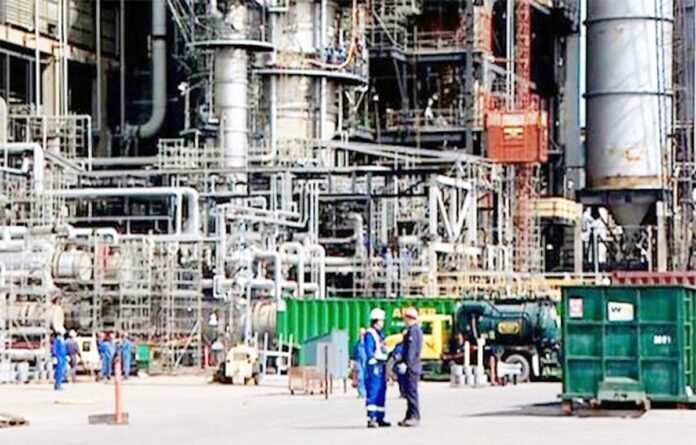In a significant development, the Dangote Refinery, boasting a robust capacity of 650,000 barrels per day, has commenced production, according to a statement by the company posted on social media on Friday.
Situated in Nigeria’s bustling commercial hub, this refinery stands as the largest single-train facility globally and commenced operations in the early hours of Friday following the delivery of six million barrels of crude supply. Originally slated to commence operations in June 2023, the mega oil refinery, spearheaded by Aliko Dangote, received its inaugural crude deliveries late last year as a strategic move to kickstart the delayed project.
Positioned as Africa’s largest of its kind, the Dangote refinery, once fully operational, holds the potential to reshape Nigeria’s economy by alleviating the country’s dependence on fuel imports. The initial phase will focus on the production of diesel and aviation fuel before transitioning to gasoline output. Despite being one of Africa’s leading oil producers and the continent’s largest economy, Nigeria has traditionally relied heavily on imported fuel and diesel due to insufficient refining capacity.
Fuel imports and subsidies have posed a substantial strain on foreign exchange reserves during periods of dwindling oil revenues and currency shortages. According to the company’s statement, the Dangote Petroleum Refinery is poised to meet 100 percent of Nigeria’s refined product requirements, including gasoline, diesel, kerosene, and aviation jets, with surplus quantities available for export.
Spanning an expansive 2,635 hectares (6,500 acres) at the Lekki Free Zone on the outskirts of Lagos City, the refinery represents a colossal investment estimated at $19 billion. Originally scheduled for inauguration in 2021, the facility was officially opened by then-President Muhammadu Buhari in 2023.
As the Dangote refinery kicks into gear, there are also expectations for the Port Harcourt refinery to commence production. Notably, President Bola Tinubu, in office since May, has initiated economic reforms, including the discontinuation of the long-standing fuel subsidy and the floating of the naira currency.
These measures, aimed at attracting foreign investment and fostering long-term growth, have necessitated patience from Nigerians amid initial challenges such as rising fuel prices, a depreciation of the naira, and an uptick in the cost of living.





